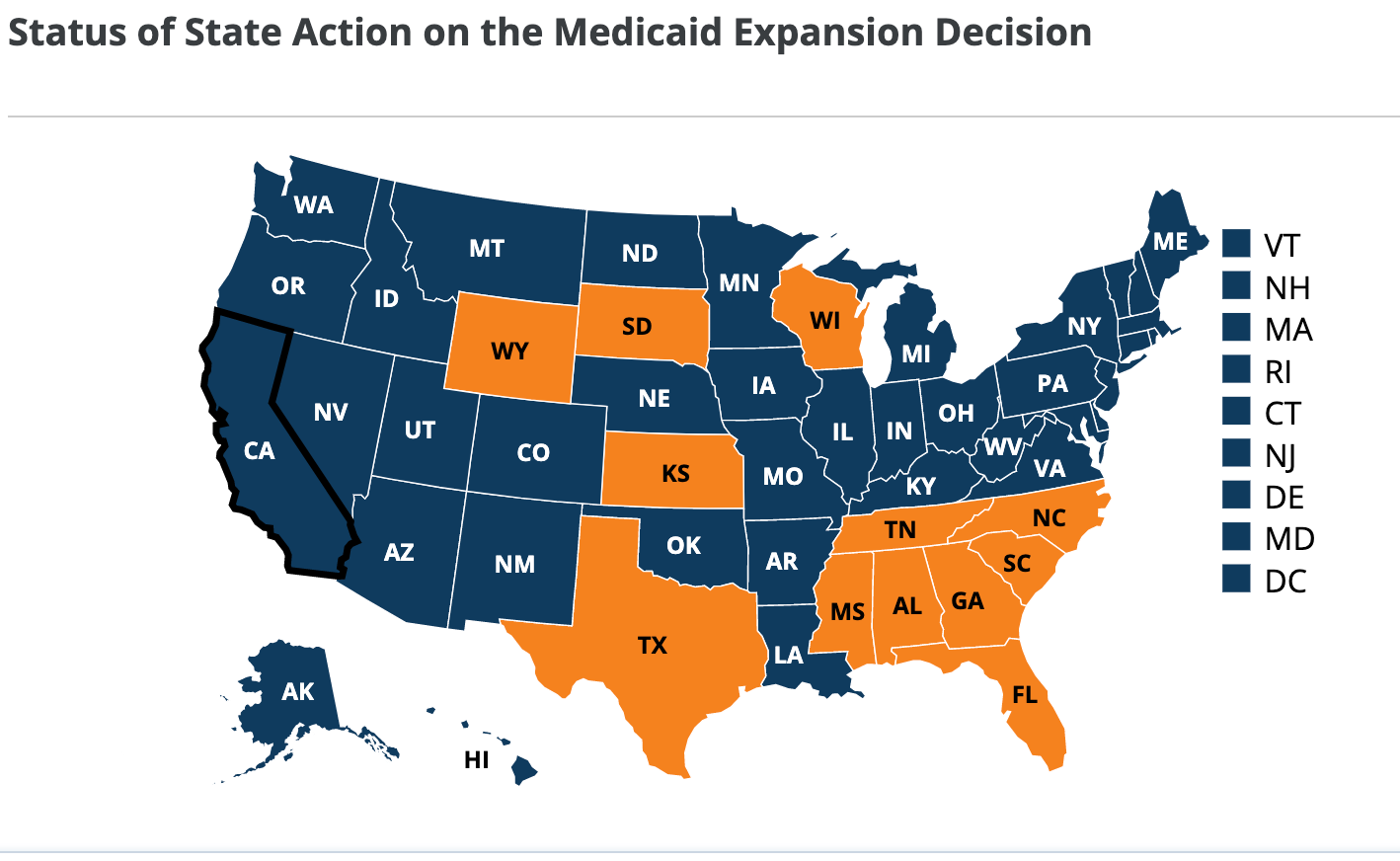Medicaid Expansion Is on the Ballot in South Dakota
If South Dakota voters approve a ballot initiative on Nov. 8, that will leave 11 states that have not expanded their Medicaid programs under the ACA.
Twelve states have not expanded their Medicaid programs under the Affordable Care Act (ACA), but only 11 may be left if more than 50% of South Dakota voters vote in favor of Amendment D on Nov. 8.
Amendment D would expand the state’s Medicare program. Gov. Kristi Noem, a Republican, who is expected to win her re-election bid, has said she will implement the amendment if it passes, although she doesn’t support Medicaid expansion.
The other states that have not expanded Medicaid are Alabama, Florida, Georgia, Kansas, Mississippi, North Carolina, South Carolina, Tennessee, Texas, Wisconsin and Wyoming.
Source: Kaiser Famiy Foundation

Proponents of Medicaid expansion see it as a practical step toward getting more Americans covered by health insurance. Detractors say it will burden state budgets, and some want to conditions, such as work requirements, attached to coverage. Several states have linked coverage to work requirements, although the Biden administration is pulling back the waivers that allowed those state to impose work requirements.
The South Dakota ballot initiative would amend the state’s constitution to expand Medicaid. An amendment that would have increased the threshold for passage from 50% of the vote to 60% was defeated earlier this year.
About 42,500 South Dakotans will become eligible for Medicaid coverage if the voters approve the amendment, according to the Argus Leader, the daily newspaper in Sioux Falls, South Dakota,
For states that agreed to Medicaid, the ACA expands the program's coverage to nearly all adults with incomes up to 138% of the federal poverty level (which this year works out to be about $18,750). The ACA enhances the federal matching rate for the expanded population to 90%.
Proponents of Medicaid expansion see it as a practical step toward getting more Americans covered by health insurance. Detractors say it will burden state budgets, and some want to conditions, such as work requirements, attached to coverage. Several states have linked coverage to work requirements, although the Biden administration is pulling back the waivers that allowed those state to impose work requirements.
The American Rescue Plan Act of 2021 also had provisions that funneled more federal dollars into state Medicaid programs.
According to Commonwealth Fund, if the ballot measure passes in South Dakota, it would be the seventh state to have expanded Medicaid after voters approved a ballot initiative. The other six are Idaho, Maine, Missouri, Nebraska, Oklahoma and Utah.
In this episode of the "Meet the Board" podcast series, Briana Contreras, Managed Healthcare Executive editor, speaks with Ateev Mehrotra, a member of the MHE editorial advisory board and a professor of healthcare policy and medicine at Harvard Medical School. Mehtrotra is also a hospitalist at the Beth Israel Deaconess Medical Center in Boston. In the discussion, Contreras gets to know Mehrotra more on a personal level and picks his brain on some of his research interests including telehealth, alternative payment models and price transparency.
Listen